“The worker must have bread, but she must have roses, too.” – Dead Pigeon Gallery interview
April 2, 2020
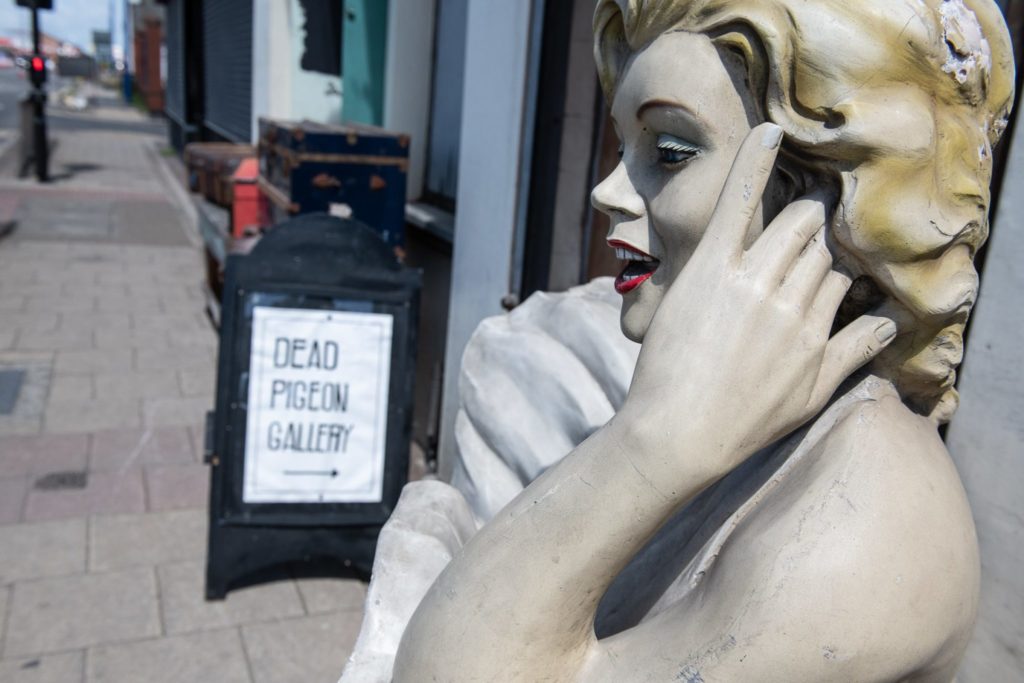
Dead Pigeon Gallery at The Old Griffin Pub, Kirkdale, 2019 photo credit Mark Loudon
Dead Pigeon Gallery is getting into its stride. The responsive, roaming project is building a reputation for taking semi-derelict buildings and using them as a canvas for artists to respond to.
Founded by artists Jayne Lawless, Catherine Dalton and Josie Jenkins, Dead Pigeon was born out of frustration at the lack of opportunities to show their work. But it goes beyond just another DIY artist initiative. Dead Pigeon is putting art in North Liverpool on the map, engaging with neighbourhoods in the area which have been culturally underserved but aren’t without talent.
I meet Lawless and Dalton in the front room of 189 Oakfield Road, Homebaked CLT’s headquarters (please note – this interview took place before the lockdown!), as the exhibition they have curated is coming to an end. Homebaked CLT have been given the go ahead to develop the row of terraces adjoining award-winning Homebaked Community Bakery and invited Dead Pigeon to curate an exhibition before work begins.
Lawless, Dalton and Jenkins brought together 24 artists who have been involved with the Homebaked CLT and Homebaked Community Bakery since it began: artists who have taken on roles as bakers, board members, managers and counter assistants to save the bakery and the row of terraces from demolition under the Housing Market Renewal Initiative.
Lawless wanted to give the artists the opportunity to show their work, “We decided to think about the last eleven years together and all the people we met along the way that we wouldn’t have met if it wasn’t for Homebaked. Every person in the exhibition has come through the Homebaked project at some point. We invited them in to show who they are as an artist rather than what they do in their job.”
This exhibition is close to home, physically and metaphorically. Lawless and Dalton grew up together in the neighbourhood and experienced what has since been called social cleansing by the Housing Renewal Initiative – a government scheme designed to regenerate disadvantaged housing market areas in the north of England between 2002 to 2011. In the shadow of Anfield, home to Liverpool FC, one of the world’s most successful football clubs, 1,800 homes were demolished and neighbourhoods were cleared.
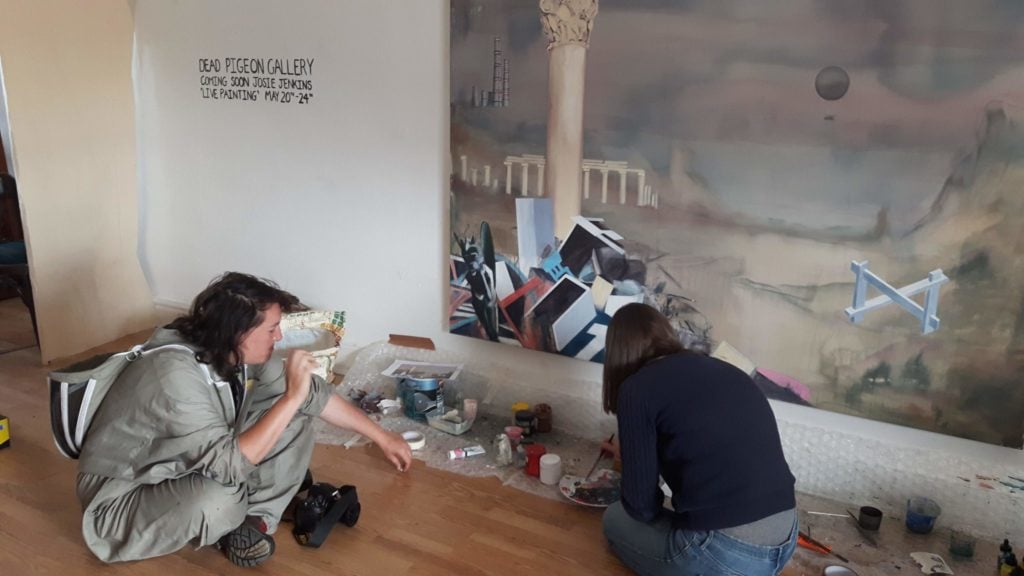
Dead Pigeon Gallery at The Old Griffin Pub, Kirkdale, 2019 – Josie Jenkins artist residence
Lawless explains: “the process started in the ‘90s but our house was demolished in 2013. My family moved out in 2008 and by that point we’d been living ten years surrounded by tin.”
Lawless’ ideas about art and her own art practice were challenged and shaped by the politics of what was going on around her.
“My entire art practice completely changed when that started happening to the area. Before that I was a ‘normal’ artist. I was always talking to the Labour Party about artists. There should be a million Ken Loaches, and there are, but people can’t create because they’re constantly worried about feeding themselves. So what we’ve got is a country filled with middle class artwork and artists. So when a working class film or a play comes out, we can’t believe it. It shouldn’t be like that because we don’t champion artists in working class communities. Because it’s seen as ‘when are you going to get a real job?’ ”
The 2018 Panic! Social Class, Taste and Inequalities in the Creative Industries report looked at the scale of social inequality in the creative industries and how those inequalities operate. Unsurprisingly, the report demonstrated that working class people are still under-represented in the arts. More worryingly, it also showed that those at the top view the arts as a meritocracy, and that social inequality is reinforced in subtle ways, from the prevalence of unpaid work to the homogenous attitudes and tastes of the ‘creative class’.
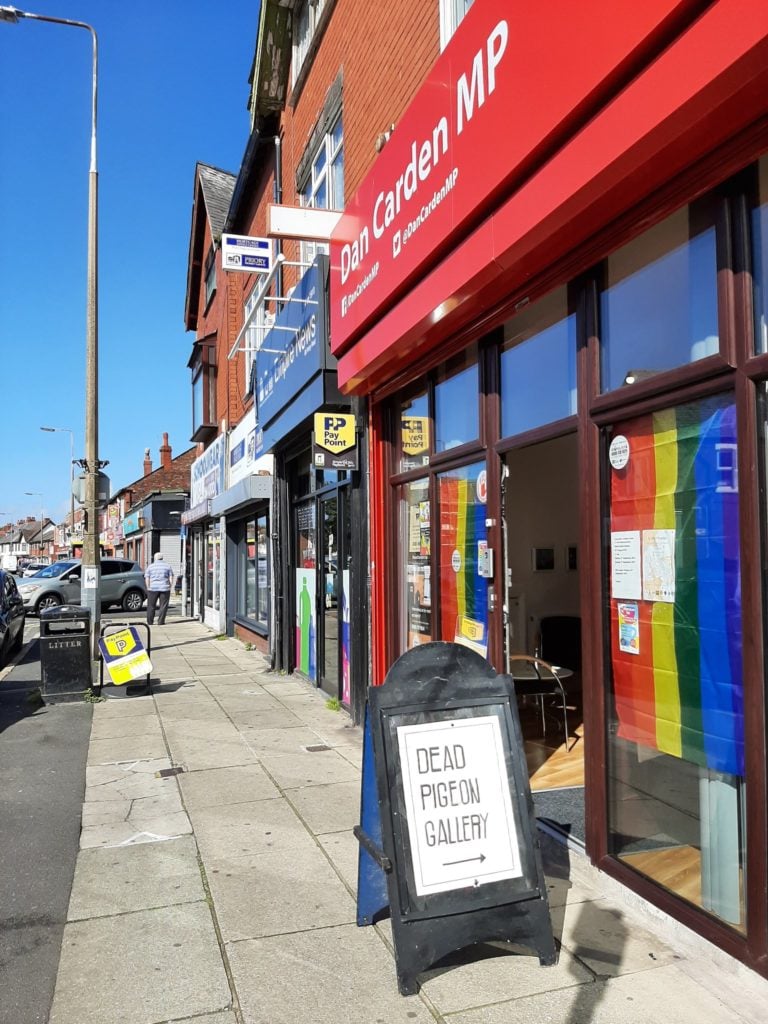
Dead Pigeon Gallery hosted by Dan Carden MP, Anfield. 2018
Lawless quotes feminist and activist Rose Schneiderman, “The worker must have bread, but she must have roses, too.” Integrated into the core of Dead Pigeon Gallery’s ethos is making art accessible and recognising and exhibiting local talent alongside more established artists. The Homebaked exhibition included work by local residents – artists like Pete Carney who makes the banners on the Kop, and international artist Jeanne Van Heeswijk, who had been invited by Liverpool Biennial to initiate the Homebaked project.
Since their first exhibition in a semi-derelict warehouse space that has since become The Tapestry in Liverpool’s emerging Fabric District, where they exhibited works by Adrian Henry alongside local artists, they have set up shop in unexpected spaces around North Liverpool.
During a residency at Dan Carden’s office on Priory Road (MP for Walton), they brought together seven artists in an exhibition and delighted in the conversations it sparked. Dalton explains “When we were in Dan Carden’s office people were just popping in, people who would never go to a gallery. It started a conversation.”
Lawless continues “you’re turning that space into an art gallery. It’s [saying] we value [the community] enough to show artwork and it gives people the opportunity to tell you about their artwork, even if they were originally coming in to tell you about the bins.”
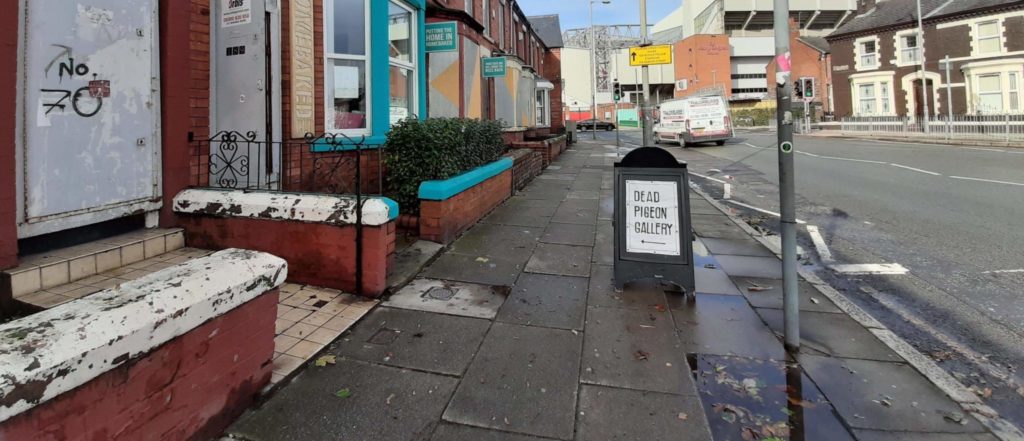
Dead Pigeon Gallery at 189 Oakfield Rd, hosted by Homebaked Community Land Trust, 2019
A six-month residency in the former Griffin Pub in Kirkdale followed. They turned their space into a working studio. The space was divided in two: Jenkins worked on a live durational painting on one wall, and on the other, an exhibition by a community organisation who were trying to save the Ralla, a stretch of important greenspace in Kirkdale that has been under threat from developers.
Now that this exhibition has ended, they are looking to the next project. They have been offered a space in Kensington. “Another area not instantly thought about when it comes to art and culture. A house, semi derelict. What’s happening naturally is we’re developing a reputation where we will take on the spaces that nobody else wanted and just see what happens. We’ve been putting together a group of people. We’ll see who lands there tomorrow. And we know that whatever they might have in their minds, it’ll change when they see the space.” The plan was to meet the artists on site the day after we met. Things are on hold now that we are under lockdown for the COVID-19 pandemic, but Dead Pigeon is responsive and adaptable. Their fluid approach doesn’t work for funders, but it’s where their strength lies in times like these.
If you would like to support Dead Pigeon Gallery, you can find out more on their Patreon page.
Filed under: Art & Photography
Tagged with: art, artist, baker, class, community, creative industries, dead pigeon gallery, Derelict, disadvantaged, homebaked, inequality, Liverpool Biennial, liverpool fc, north liverpool, opportunity, overlooked, politics, project, Regeneration, social, space
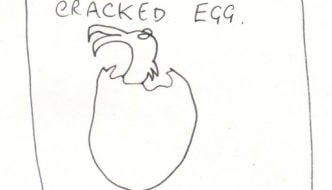

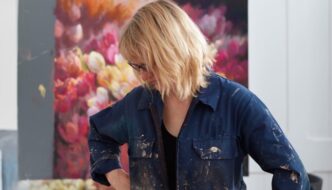
Comments